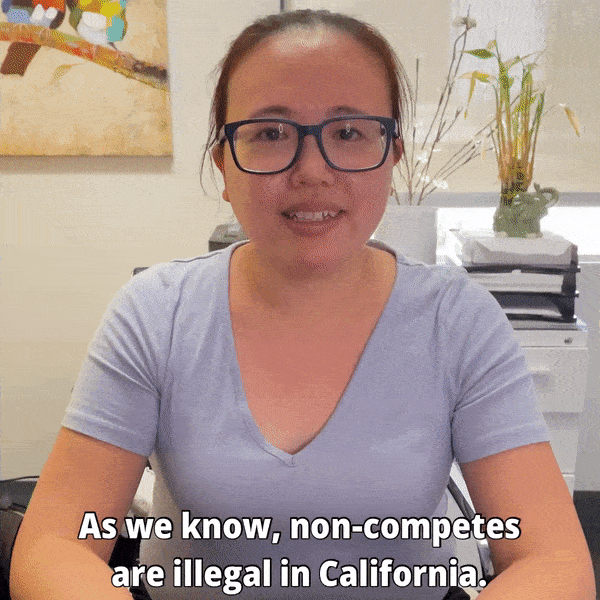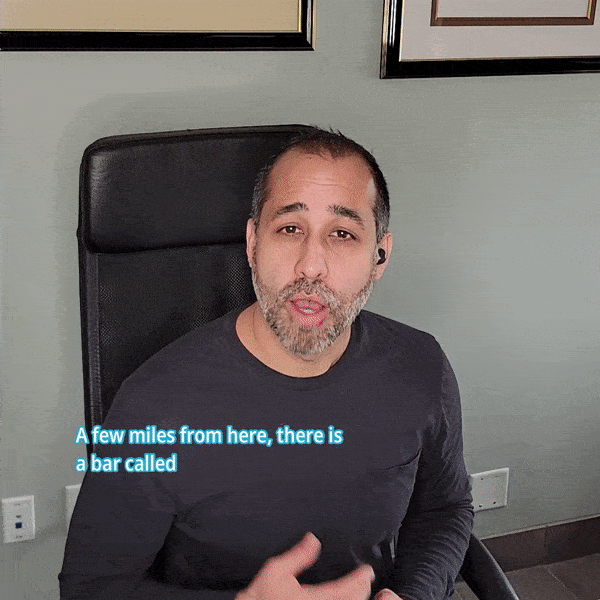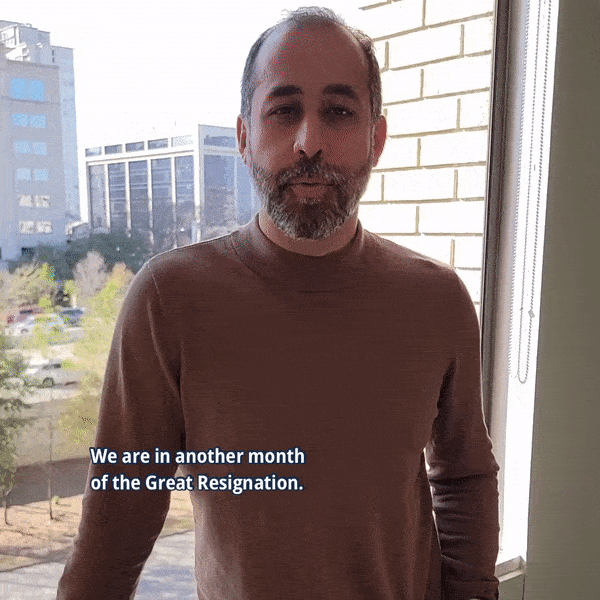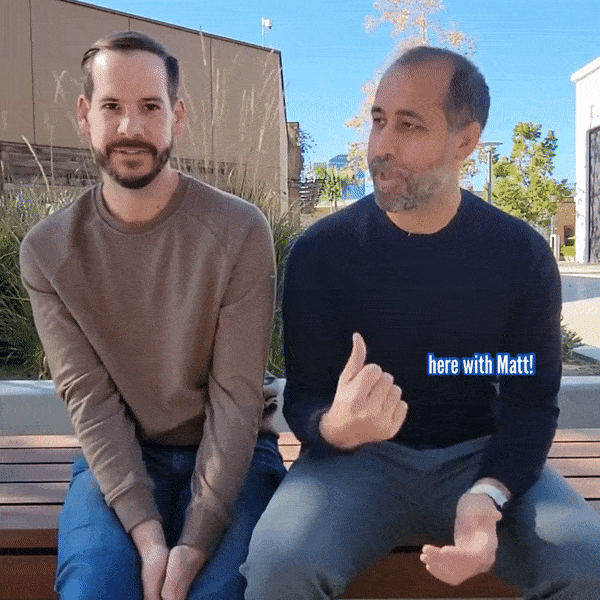The Texas Court of Appeals 2013 decision in Nacogdoches Heart Clinic, P.A. v. Pokala raises some puzzling questions about the direction of noncompete law in Texas. It makes sense from a public policy perspective, but it’s hard to find a basis for it in Texas statutory law. Does this signal that noncompetes will be more difficult to enforce in Texas in the future?
What Happened?
Dr. Pokala, a cardiologist, began working for Nacogdoches Heart Clinic, P.A. in 1989 and signed an employment contract that contained a covenant not to compete. Paragraph 19 of the agreement specified that he would not
engage or participate, directly or indirectly, either as an employee, employer, consultant[,] agent, principal, partner, stockholder, corporate officer, director, or in any other individual or representative capacity, in the practice of medicine, within ten (10) miles of the city limits of the City of Nacogdoches, Texas, for a period of one (1) year.
After a dispute involving a patient on February 2, 2006, Dr. Pokala was fired. Four days later, on February 6, 2006, he opened the Nacogdoches Cardiac Center. NHC, his former employer, sued on a variety of grounds, including breach of the covenant not to compete. Dr. Pokala counterclaimed, and the battle was on.
The trial court found, as a matter of law, that the covenant not to compete in the employment agreement was unenforceable. The Texas Court of Appeals affirmed the decision, and the Texas Supreme Court declined to hear the case, which is often understood to mean that it implicitly agreed with the result.
Texas Law
Texas is generally thought to occupy something of a middle ground on the question of the enforceability of noncompetes. California and North Dakota generally forbid noncompete agreements in the employment context. Delaware and Michigan courts are more eager to enforce them.
Texas law has its own oddities beyond the usual requirements of reasonableness in the restriction. Texas Business and Commerce Code Section 15.50 requires two things of all enforceable noncompete agreements.
The first is that the agreement must be ancillary to or part of an otherwise enforceable agreement at the time the agreement is made.
Practically speaking, this means that it must be supported by consideration of some sort. A great deal of case law in Texas focuses on this requirement because courts have held that payment of salary or employment is not enough. There must be a “plus factor,” such as access to confidential information or specialized training, for the noncompete to be enforceable. That is not really an issue in this case, but is part of the wider discussion of Texas and noncompete agreements.
The second is the familiar requirement that, to the extent that agreements contain limitations as to time, geographical area and scope of activity, the restraints must be reasonable and must not impose a greater restraint than is necessary to protect the goodwill or other business interest of the promisee.
In addition to these requirements of all noncompetes, the Texas statute goes on to specifically require several other things in agreements involving doctors. These include continued access to patient lists and records, the ability to treat the patient in a period of acute illness and a buyout provision. The buyout was also an issue in the Pokala case, but that is not why the case was interesting.
Losing a Cardiologist Would Harm the Public
The decision seems to have turned on compelling evidence introduced at trial that the residents of Nacogdoches could ill afford to lose a cardiologist:
- There were only three cardiologists in town when the defendant joined the practice in 2006;
- A local hospital representative testified that, were the defendant forced to leave the area, it would “destabilize the availability of cardiovascular care,” as well as emergency room care; and
- The defendant regularly cared for indigent patients.
The decision was a win for public health, and it’s very high-minded. It’s just not in the law, which treats noncompete agreements as having only two participants: the employer and the employee.
The language of Section 15.50 refers to goodwill or other business interest of the promisee (employer). It is not a three-part balancing act, involving the interests of the employer, the employee and the public. For the legally-minded, this goes to the contract issue of the rights of third party beneficiaries.
So, what’s happening here? Is Texas noncompete law changing to include the interest of the public? How far does this go?
Four Possibilities
There are several ways to look at this question, and none of them excludes the other possibilities. Here are four angles.
The State Court Felt the Restrictions were Overly Broad
It is not uncommon to see a time restriction of six months to two years and a geographic range of from five to twenty miles from the employer’s place of business in Texas noncompete agreements. The prohibition against any practice of medicine seems pretty broad, though.
There is nothing in the language of the decision that suggests that this was a sticking point, but it is unusual and may have been an underlying factor in the court’s decision.
The State Court Applied a Federal Standard
Some commenters have noted that, if the case had initially been brought in federal district court, rather than in the state system, a federal judge would have had the opportunity to consider whether preventing Dr. Pokala from opening his practice would “disserve the public interest.”
In other words, a federal court, unlike a state court, would have had the opportunity to balance:
- the importance of preserving freedom of contract on one hand, an issue that seems to loom large in Texas noncompete decisions, and
- the importance of keeping a doctor with an uncommon specialty in the local area, thus preserving patients’ freedom to select a physician of their choice.
Perhaps the state court just imported a federal standard. It looks like a legal error, but it was apparently embraced by the highest Texas court. If it was not the law before, it may be the law now. This is a spot to watch for further developments.
The Doctor/Patient Relationship is Different
Some states, including Massachusetts and Alabama, already ban physician noncompete agreements. Texas, itself, has adopted some specific provisions that relate only to doctors. Legislatures seem ready to recognize that the doctor/patient relationship is different from the service provider/client or merchant/customer relationship.
The exceptions in the statute relating to patient care are particularly relevant here. Do they suggest that, buried in the fine print, the law really does recognize an interest of patients that would weigh against the enforceability of physician noncompete agreements? It does not go all the way to establish a general public interest that extends beyond existing patients, but some would argue that the dam has been breached.
Is Texas on the road to banning physician noncompetes, as other states have done? Of course, this is the legislature’s job, not the court’s, but people lose patience with fussy, legalistic arguments about something as important as healthcare.
The Floodgates Have Opened!
Actually, Massachusetts and Alabama have adopted provisions that make noncompete agreements affecting a wide variety of licensed professionals generally unenforceable. Why stop at doctors? Why stop at licensed professionals?
Behind door number four, the issue seems to be scarcity. The problem of sparse healthcare options in small communities in the center of the country is well-documented. Changing state law on the enforceability of physician noncompete agreements is not really going to change that, but it might make a difference at the margins for small towns like Nacogdoches.
There seems to be no shortage of lawyers or many other licensed professionals at the moment, but who knows where shortages may appear next. Not to hyperventilate, but If employers require sandwich-makers at local food carry-outs to sign noncompete agreements, why should the public not be concerned about the economic and other distortions that could follow?
Should Texas Law Change?
Principle number one is that when law and economics collide, it generally makes some sense for law to get out of the way.
Principle number two is that uncertainty about what the law is may be worse for business than any other option. Trying to read the silence of the Texas Supreme Court in Pokala is bound to create uncertainty.
Perhaps the option that might best meet the competing needs for business certainty and economic flexibility would be for the Texas legislature to explicitly adopt the federal standard for evaluating the enforecability of all noncompete agreements, not just those involving doctors or other professionals.
Even state courts, then, could weigh the potential effect of enjoining competition on the public interest as well as the interests of both parties to the contract. It would be a three-part analysis and could be more complicated, but it would at least allow all the stakeholders to be heard.
Will it make enforcing a noncompete agreement more difficult? Probably. But businesses are increasingly evaluating their business decisions in this kind of multidimensional socially responsible way. Why should the law lag behind? Strong proponents of the principle of freedom of contract would simply find themselves in a wider-ranging discussion with advocates of free competition and consumers.


![California v. Texas: Which is Better for Business? [313]](https://www.pashalaw.com/wp-content/uploads/2021/07/Pasha_LSSB_CaliforniaVSTexas-1024x723.jpg)

![Employers vs. Employees: When Are Employment Restrictions Fair? [e318]](https://www.pashalaw.com/wp-content/uploads/2022/05/Pasha_LSSB_EmployeesVsEmployers_banner-1-1024x723.jpg)







![They Let It Slip | Behind the Buy [5/8] [306]](https://www.pashalaw.com/wp-content/uploads/2020/06/Behind-the-buy-they-let-it-slip-1024x683.jpg)




![Law in the Digital Age: Exploring the Legal Intricacies of Artificial Intelligence [e323]](https://www.pashalaw.com/wp-content/uploads/2023/11/WhatsApp-Image-2023-11-21-at-13.24.49_4a326c9e-300x212.jpg)
![Unraveling the Workforce: Navigating the Aftermath of Mass Layoffs [e322]](https://www.pashalaw.com/wp-content/uploads/2023/07/Untitled-design-23-300x212.png)
![Return to the Office vs. Remote: What Can Employers Legally Enforce? [e321]](https://www.pashalaw.com/wp-content/uploads/2023/01/Pasha_LSSB_321_banner-300x212.jpg)
![Explaining the Hans Niemann Chess Lawsuit v. Magnus Carlsen [e320]](https://www.pashalaw.com/wp-content/uploads/2022/10/LAWYER-EXPLAINS-7-300x169.png)
![California v. Texas: Which is Better for Business? [313]](https://www.pashalaw.com/wp-content/uploads/2021/07/Pasha_LSSB_CaliforniaVSTexas-300x212.jpg)
![Buyers vs. Sellers: Negotiating Mergers & Acquisitions [e319]](https://www.pashalaw.com/wp-content/uploads/2022/06/Pasha_LSSB_BuyersVsSellers_banner-300x212.jpg)
![Employers vs. Employees: When Are Employment Restrictions Fair? [e318]](https://www.pashalaw.com/wp-content/uploads/2022/05/Pasha_LSSB_EmployeesVsEmployers_banner-1-300x212.jpg)
![Vaccine Mandates Supreme Court Rulings [E317]](https://www.pashalaw.com/wp-content/uploads/2022/02/WhatsApp-Image-2022-02-11-at-4.10.32-PM-300x212.jpeg)
![Business of Healthcare [e316]](https://www.pashalaw.com/wp-content/uploads/2021/11/Pasha_LSSB_BusinessofHealthcare_banner-300x212.jpg)
![Social Media and the Law [e315]](https://www.pashalaw.com/wp-content/uploads/2021/10/WhatsApp-Image-2021-10-06-at-1.43.08-PM-300x212.jpeg)
![Defining NDA Boundaries: When does it go too far? [e314]](https://www.pashalaw.com/wp-content/uploads/2021/09/Pasha_LSSB_NDA_WordPress-2-300x212.jpg)
![More Than a Mistake: Business Blunders to Avoid [312] Top Five Business Blunders](https://www.pashalaw.com/wp-content/uploads/2021/06/Pasha_LSSB_Blunders_WP-1-300x212.jpg)
![Is There a Right Way to Fire an Employee? We Ask the Experts [311]](https://www.pashalaw.com/wp-content/uploads/2021/02/Pasha_LSSB_FireAnEmployee_Website-300x200.jpg)
![The New Frontier: Navigating Business Law During a Pandemic [310]](https://www.pashalaw.com/wp-content/uploads/2020/12/Pasha_LSSB_Epidsode308_Covid_Web-1-300x200.jpg)
![Wrap Up | Behind the Buy [8/8] [309]](https://www.pashalaw.com/wp-content/uploads/2020/11/Pasha_BehindTheBuy_Episode8-300x200.jpg)
![Is it all over? | Behind the Buy [7/8] [308]](https://www.pashalaw.com/wp-content/uploads/2020/09/iStock-1153248856-overlay-scaled-300x200.jpg)
![Fight for Your [Trademark] Rights | Behind the Buy [6/8] [307]](https://www.pashalaw.com/wp-content/uploads/2020/07/Fight-for-your-trademark-right-300x200.jpg)
![They Let It Slip | Behind the Buy [5/8] [306]](https://www.pashalaw.com/wp-content/uploads/2020/06/Behind-the-buy-they-let-it-slip-300x200.jpg)
![Mo’ Investigation Mo’ Problems | Behind the Buy [4/8] [305]](https://www.pashalaw.com/wp-content/uploads/2020/05/interrobang-1-scaled-300x200.jpg)
![Broker or Joker | Behind the Buy [3/8] [304] Behind the buy - Broker or Joker](https://www.pashalaw.com/wp-content/uploads/2020/04/Joker-or-Broker-1-300x185.jpg)
![Intentions Are Nothing Without a Signature | Behind the Buy [2/8] [303]](https://www.pashalaw.com/wp-content/uploads/2020/04/intentions-are-nothing-without-a-signature-300x185.jpg)
![From First Steps to Final Signatures | Behind the Buy [1/8] [302]](https://www.pashalaw.com/wp-content/uploads/2020/04/first-steps-to-final-signatures-300x185.jpg)
![The Dark-side of GrubHub’s (and others’) Relationship with Restaurants [e301]](https://www.pashalaw.com/wp-content/uploads/2015/04/When-Competition-Goes-Too-Far-Ice-Cream-Truck-Edition-300x201.jpg)
![Ultimate Legal Breakdown of Internet Law & the Subscription Business Model [e300]](https://www.pashalaw.com/wp-content/uploads/2019/05/Ultimate-Legal-Breakdown-of-Internet-Law-the-Subscription-Business-Model-300x196.jpg)
![Why the Business Buying Process is Like a Wedding?: A Legal Guide [e299]](https://www.pashalaw.com/wp-content/uploads/2019/03/futura-300x169.jpg)
![Will Crowdfunding and General Solicitation Change How Companies Raise Capital? [e298]](https://www.pashalaw.com/wp-content/uploads/2018/11/Will-Crowdfunding-and-General-Solicitation-Change-How-Companies-Raise-Capital-300x159.jpg)
![Pirates, Pilots, and Passwords: Flight Sim Labs Navigates Legal Issues (w/ Marc Hoag as Guest) [e297]](https://www.pashalaw.com/wp-content/uploads/2018/07/flight-sim-labs-300x159.jpg)
![Facebook, Zuckerberg, and the Data Privacy Dilemma [e296] User data, data breach photo by Pete Souza)](https://www.pashalaw.com/wp-content/uploads/2018/04/data-300x159.jpg)
![What To Do When Your Business Is Raided By ICE [e295] I.C.E Raids business](https://www.pashalaw.com/wp-content/uploads/2018/02/ice-cover-300x159.jpg)
![General Contractors & Subcontractors in California – What you need to know [e294]](https://www.pashalaw.com/wp-content/uploads/2018/01/iStock-666960952-300x200.jpg)
![Mattress Giants v. Sleepoplis: The War On Getting You To Bed [e293]](https://www.pashalaw.com/wp-content/uploads/2017/12/sleepopolis-300x159.jpg)
![The Harassment Watershed [e292]](https://www.pashalaw.com/wp-content/uploads/2017/12/me-2-300x219.jpg)
![Investing and Immigrating to the United States: The EB-5 Green Card [e291]](https://www.pashalaw.com/wp-content/uploads/2012/12/eb-5-investment-visa-program-300x159.jpg)
![Responding to a Government Requests (Inquiries, Warrants, etc.) [e290] How to respond to government requests, inquiries, warrants and investigation](https://www.pashalaw.com/wp-content/uploads/2017/10/iStock_57303576_LARGE-300x200.jpg)
![Ultimate Legal Breakdown: Employee Dress Codes [e289]](https://www.pashalaw.com/wp-content/uploads/2017/08/Ultimate-Legal-Breakdown-Template-1-300x159.jpg)
![Ultimate Legal Breakdown: Negative Online Reviews [e288]](https://www.pashalaw.com/wp-content/uploads/2017/06/Ultimate-Legal-Breakdown-Online-Reviews-1-300x159.jpg)
![Ultimate Legal Breakdown: Social Media Marketing [e287]](https://www.pashalaw.com/wp-content/uploads/2017/06/ultimate-legal-breakdown-social-media-marketing-blur-300x159.jpg)
![Ultimate Legal Breakdown: Subscription Box Businesses [e286]](https://www.pashalaw.com/wp-content/uploads/2017/03/ultimate-legal-breakdown-subscription-box-services-pasha-law-2-300x159.jpg)
![Can Companies Protect Against Foreseeable Misuse of Apps [e285]](https://www.pashalaw.com/wp-content/uploads/2017/01/iStock-505291242-300x176.jpg)
![When Using Celebrity Deaths for Brand Promotion Crosses the Line [e284]](https://www.pashalaw.com/wp-content/uploads/2017/01/celbrity-300x159.png)
![Are Employers Liable When Employees Are Accused of Racism? [e283] Racist Employee](https://www.pashalaw.com/wp-content/uploads/2016/12/Are-employers-liable-when-an-employees-are-accused-of-racism-300x159.jpg)
![How Businesses Should Handle Unpaid Bills from Clients [e282] What to do when a client won't pay.](https://www.pashalaw.com/wp-content/uploads/2016/12/How-Businesses-Should-Handle-Unpaid-Bills-to-Clients-300x159.png)
![Can Employers Implement English Only Policies Without Discriminating? [e281]](https://www.pashalaw.com/wp-content/uploads/2016/11/Can-Employers-Impliment-English-Only-Policies-Without-Discriminating-300x159.jpg)
![Why You May No Longer See Actors’ Ages on Their IMDB Page [e280]](https://www.pashalaw.com/wp-content/uploads/2016/10/IMDB-AGE2-300x159.jpg)
![Airbnb’s Discrimination Problem and How Businesses Can Relate [e279]](https://www.pashalaw.com/wp-content/uploads/2016/09/airbnb-300x159.jpg)
![What To Do When Your Amazon Account Gets Suspended [e278]](https://www.pashalaw.com/wp-content/uploads/2016/09/What-To-Do-When-Your-Amazon-Account-Gets-Suspended-1-300x200.jpg)
![How Independent Artists Reacted to Fashion Mogul Zara’s Alleged Infringement [e277]](https://www.pashalaw.com/wp-content/uploads/2016/08/How-Independent-Artists-Reacted-to-Fashion-Mogul-Zaras-Alleged-Infringement--300x159.jpg)
![Can Brave’s Ad Replacing Software Defeat Newspapers and Copyright Law? [e276]](https://www.pashalaw.com/wp-content/uploads/2016/08/Can-Braves-Ad-Replacing-Software-Defeat-Newspapers-and-Copyright-Law-300x159.jpg)
![Why The Roger Ailes Sexual Harassment Lawsuit Is Far From Normal [e275]](https://www.pashalaw.com/wp-content/uploads/2016/07/WHY-THE-ROGER-AILES-SEXUAL-HARASSMENT-LAWSUIT-IS-FAR-FROM-NORMAL-300x159.jpeg)
![How Starbucks Turned Coveted Employer to Employee Complaints [e274]](https://www.pashalaw.com/wp-content/uploads/2016/07/iStock_54169990_LARGE-300x210.jpg)
